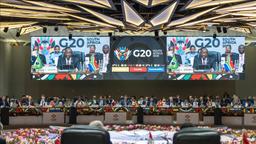
Policy Note/ Fatih Özatay, Güven Sak
The only measure we currently have to control coronavirus (COVID-19) global pandemic spread as well as not to become an even more severe public health crisis is social distancing. All over the world, including Turkey, we are transitioning from a voluntary social distancing measure to a compulsory one. So far, Turkey has imposed a curfew for those who are under 20 and over the age of 65, restricted intercity travel, and initiated distance education, including universities, for all academic institutions. Turkey is taking measures alongside everyone else.
Due to the social distancing measures, we have temporarily changed our way of life and habits. Accordingly, from services sector to manufacturing industry, economic activities in a plethora of sectors are shrinking rapidly at the onset of falling supply and demand. To give an example, on arrivals from abroad, truck drivers mostly transporting goods have a mandatory fourteen-day quarantine. Under these circumstances, supply chains are no longer function like before. We will have to get accustomed to seeing familiar challenges even in intercity trade unless there are positive developments in the health side of things sometime soon.
To this day, we published two policy notes measuring the negative economic effects of COVID-19 and started discussions on what could be done to limit its impact. The objective of our first policy note was to emphasize that the current negative economic downturn is of a size never encountered before and that unprecedented circumstance requires extraordinary measures. As such, for the first time, a mechanism is required to function as the “buyer of last resort” similar to central banks’ “lender of last resort” function for the real economy. Additionally, we emphasized the increasing importance of income support for those who just lost their jobs and are currently unemployed. The first policy note further argued that the Central Bank could be financed via purchasing Treasury Bills (T-Bills) or government bonds to be issued by the Treasury during this period.
You may read policy note from here.






